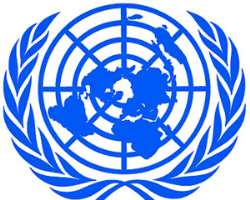Regional Seminar on the Implementation and Promotion of Economic, Social and Cultural Rights: Discrimination in the context of the Right to Food in Southern Africa

LILONGWE, Malawi, March 28, 2013/African Press Organization (APO)/ -- Around 60 experts from governments, civil society, national human rights institutions, as well as the agricultural sector will meet from 3 to 4 April 2013 in Lilongwe, Malawi, to discuss concrete measures to respect, protect and fulfil the right to food in the sub-region. Experts from Belgium, Norway, the Food and Agricultural Organization of the United Nations, the Office of the United Nations High Commissioner for Human Rights and other UN agencies will also attend.
The Regional Office for Southern Africa of the UN High Commissioner for Human Rights is convening the meeting in close cooperation with the Government of Malawi, the United Nations Country Team in Malawi, and the UN Special Rapporteur on the right to food, with the financial support of the Flemish Government (Belgium) and the Royal Norwegian Embassy.
The objective of the seminar is to facilitate an exchange of experiences and lessons learned related to the implementation of the right to food, and to increase awareness of the right to food and of existing implementation tools in the sub-region. The seminar is in follow-up to the recommendations made at a sub-regional expert seminar on economic, social and cultural rights held in Maputo, Mozambique, in December 2011, and takes into account the findings of the expert consultations on the right to food convened by the Special Rapporteur on the right to food in Nairobi, Kenya, in April 2012.
The regional seminar seeks to pool experiences and build knowledge on the implementation of the right to food and human rights-based approaches to tackling hunger and food and nutrition insecurity in Angola, Botswana, Lesotho, Malawi, Mozambique, Namibia, South Africa, Swaziland, Zambia and Zimbabwe.
In recent years, several countries in Southern Africa have been adopting constitutional provisions as well as national framework laws, strategies, policies and programmes to strengthen the protection of the right to food, and are leading the way at the global level. These institutional developments are vital and serve to clarify that “fighting hunger and malnutrition is not merely a charitable cause but rather a matter of empowering people to claim their rights and to hold Governments accountable”, as mentioned by the Special Rapporteur on the right to food.
